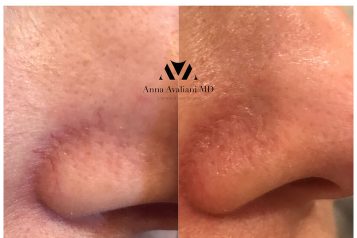The connection between mental and physical health is well-established, but one critical area that often goes unnoticed is the impact of mental health on oral health. Conditions such as depression, ADHD, anxiety, and even Alzheimer’s disease are now understood to play a significant role in a person’s dental well-being, while hypertension (high blood pressure) introduces its own challenges in dental care. Here’s a closer look at how these mental and physical health conditions intersect with oral health and why dental visits can be a vital step in identifying and managing both mental health and hypertension.
 Photo Credit: Shutterstock
Photo Credit: Shutterstock
1. The Connection Between Mental Health Conditions and Dental Health
Mental health conditions like depression, ADHD, and anxiety can indirectly affect dental health by influencing lifestyle choices and habits. For instance:
- Depression can lead to neglect of daily oral hygiene routines, as individuals may struggle with low energy and motivation.
- ADHD often comes with impulsivity and forgetfulness, which can result in inconsistent dental care habits or dietary choices that harm teeth.
- Anxiety can exacerbate habits like teeth grinding (bruxism), which leads to enamel erosion and jaw issues.
Additionally, these mental health conditions can affect sleep quality, which impacts the immune system, leaving individuals more susceptible to oral bacteria. For example, people with braces who often rely on mouth-breathing due to restricted nasal airflow may experience a dryer mouth. This condition promotes bacterial growth and heightens the risk of cavities and gum disease. This complex interplay highlights how mental health and dental health are more connected than we may realize.
2. The Impact of High Blood Pressure on Oral Health
Hypertension, or high blood pressure, is another condition that can significantly impact oral health. For example, hypertension can lead to reduced blood flow in the gums, impairing healing and raising the risk of gum disease. Additionally, patients with hypertension must be carefully managed during dental treatments, as certain dental medications, like local anesthetics containing epinephrine, can elevate blood pressure levels. Nitrous oxide may be used as a safer alternative for these patients to help manage pain without spiking blood pressure.
Understanding and disclosing a patient’s blood pressure is critical for safe dental treatment, as unmonitored hypertension could lead to serious complications.
3. Dental Anxiety and Patient Experiences
Mental health conditions and hypertension can also contribute to heightened dental anxiety, which can make dental visits challenging. Anxiety and ADHD may make it difficult for patients to stay calm or still during longer treatments, and the clinical environment of a dental office may feel overwhelming. In patients with high blood pressure, stress can raise their blood pressure even further, which could impact the effectiveness of anesthesia or pain management methods. Tailored approaches, such as the use of nitrous oxide, shorter appointments, or creating a relaxed, accommodating atmosphere, are critical in helping these patients have a positive dental experience.
4. Dental Visits as Opportunities for Early Detection
Dental visits offer an important opportunity for identifying potential health concerns that may go undetected otherwise. Dentists are often among the first healthcare providers to spot signs of issues like depression, which might manifest as a decline in oral hygiene. Other mental health symptoms, such as grinding teeth, may signal high-stress levels or anxiety. Similarly, blood pressure checks, a common practice in many dental offices, can reveal previously unknown cases of hypertension.
Routine dental care is also an excellent time to address dental anxiety. Dentists who build trust and communicate effectively can create a safe space where patients feel comfortable discussing broader health concerns, including mental health or blood pressure, making dental visits a gateway to more comprehensive health care.
5. The Role of Oral Health in Quality of Life
Good oral health can significantly impact overall well-being, particularly for individuals with depression, ADHD, anxiety, or high blood pressure. Dental health influences one’s confidence, comfort, and even social interactions, all of which can have a positive effect on mental health. For those with hypertension, maintaining healthy gums and teeth can support cardiovascular health, as gum disease is associated with an increased risk of heart problems.
Managing mental health through oral health, therefore, is a holistic approach that can improve an individual’s quality of life, encouraging positive habits and potentially reducing symptoms of mental health conditions.
Understanding the connection between mental health, hypertension, and oral health empowers patients to manage their well-being more holistically. As dental professionals become more attuned to these interactions, dental visits can serve as valuable opportunities for early detection, management, and overall health improvement. Through compassionate care and mindful observation, dental practices can contribute significantly to patients’ mental and physical health, enhancing their quality of life.
For any questions, visit Dr. Nammy Patel at Green Dentistry in San Fransisco, California.
For more information, visit Green Dentistry's social media:
























